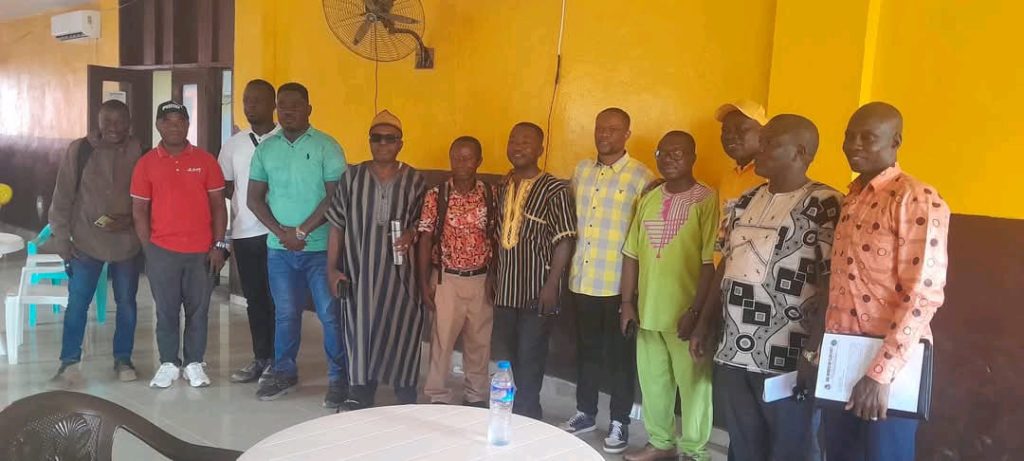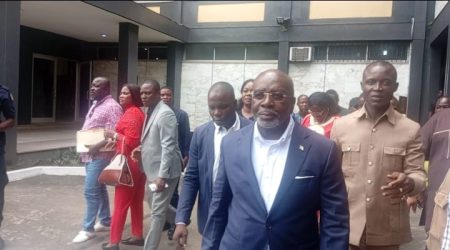The administration of Liberian President Joseph Nyumah Boakai is facing mounting pressure from faculty members at rural universities and colleges, who are threatening a nationwide strike over long-standing grievances concerning poor working conditions and inadequate compensation. The Rural Universities and Colleges Faculty Association (RUCFA) has voiced its members’ frustrations, citing chronic salary delays, lack of housing and essential instructional resources, and the government’s persistent disregard for their repeated appeals for improvement. This brewing crisis underscores the challenges facing Liberia’s education sector and places the Boakai administration in a precarious position as it strives to maintain a reformist image amidst escalating economic and social pressures.
The core issue fueling the potential strike is the disparity between the working conditions and compensation offered to faculty at rural institutions compared to their urban counterparts. RUCFA Secretary General Philip Kwahime has articulated the dire situation faced by educators in rural areas, where they struggle with delayed salaries, inadequate housing, and a lack of basic resources necessary for effective teaching. These conditions, they argue, not only create personal hardships but also undermine the quality of education provided to students in these regions. The faculty association contends that the government’s inaction in addressing their concerns demonstrates a lack of commitment to rural education and a disregard for the vital role these institutions play in national development.
The threatened strike poses a significant risk to the already fragile Liberian education system. A prolonged disruption of academic activities at rural universities and colleges could have cascading consequences, delaying graduations, discouraging student enrollment, and exacerbating existing inequalities in access to higher education. This potential disruption comes at a critical juncture for Liberia, as it strives to rebuild and strengthen its educational infrastructure after years of civil conflict and underdevelopment. The strike threat highlights the urgent need for increased investment in education and a more equitable distribution of resources to ensure that all students, regardless of their location, have access to quality learning opportunities.
The Boakai administration now faces the difficult task of balancing its reform agenda with the pressing demands of the RUCFA. The government’s response to this impending crisis will be closely scrutinized, both domestically and internationally. A failure to address the faculty’s concerns effectively could further damage the administration’s credibility and undermine its efforts to promote economic and social progress. Conversely, a proactive and constructive engagement with the RUCFA could demonstrate the government’s commitment to improving the education sector and fostering a more inclusive and equitable society.
The potential strike also raises broader questions about the prioritization of education within Liberia’s national development strategy. The RUCFA argues that investing in education, particularly in rural areas, is essential for fostering economic growth, reducing poverty, and promoting social mobility. By providing quality education to all citizens, Liberia can cultivate a skilled workforce, empower individuals to contribute meaningfully to society, and build a more prosperous and equitable future. The government’s response to the RUCFA’s demands will signal its commitment to these goals and its understanding of the transformative power of education.
The decision facing the Boakai administration is not simply about resolving a labor dispute; it is about making a fundamental choice regarding the future of Liberia. By addressing the legitimate concerns of the RUCFA and investing in the improvement of rural higher education, the government can demonstrate its commitment to building a stronger, more equitable, and prosperous nation. Failure to act decisively, however, risks not only a crippling strike but also a missed opportunity to harness the transformative potential of education for the benefit of all Liberians. The looming strike serves as a stark reminder of the critical importance of investing in education as a cornerstone of national development and the urgent need for a more equitable distribution of resources to ensure that all citizens have access to quality learning opportunities.














